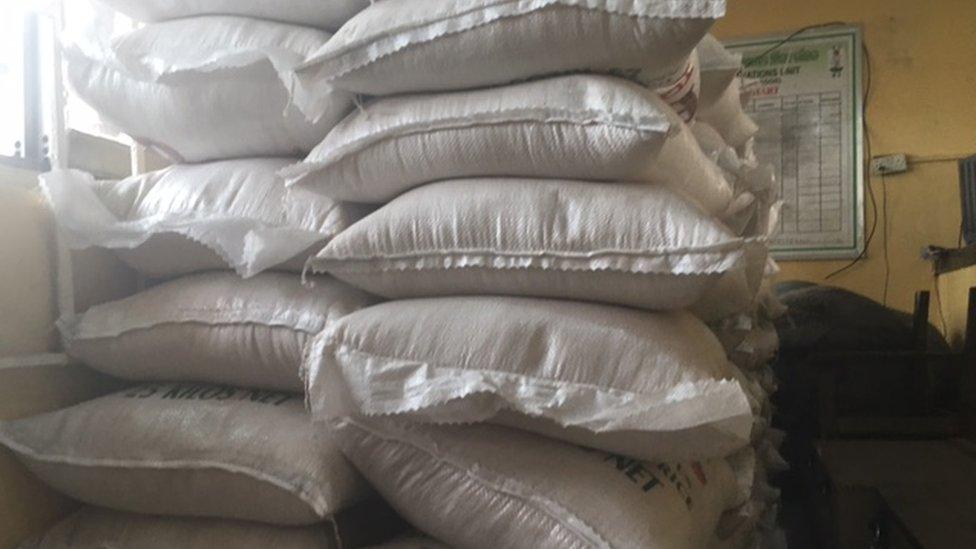Nigeria rice 'contaminated, not plastic' - NAFDAC
- Published

Each bag of rice weighed 25kg (55lb)
Lab tests on a consignment of rice seized by Nigerian customs officials show that the product is "contaminated" but not plastic, the National Agency For Food and Drugs (Nafdac) says.
The rice contained bacteria "above permissible limits", a senior Nafdac official said.
Customs officials' claims that the rice seized in Lagos last week was "plastic" sparked confusion and official denials.
The health minister intervened, saying there was "no evidence" for the claims.
Tests on samples of the rice showed that it was "unwholesome for human consumption", exceeding the maximum limit for bacteria including "Coli form", Nafdac said in a statement.
The Nigerian customs service, speaking at the same press conference, said that it had acted on "credible intelligence" that "large consignments of plasticized rice were.... to be shipped from the Far East to Africa".
Regardless of the outcome of the lab tests, intelligence still indicated that "several metric tonnes of expired and dangerous rice are still lying in wait at warehouses in neighbouring countries", with the Nigerian market the ultimate destination, customs chief Ibrahim Ali told media.
Rice is Nigeria's staple food and it is a tradition for people to give bags of rice as a gift during the Christmas period.